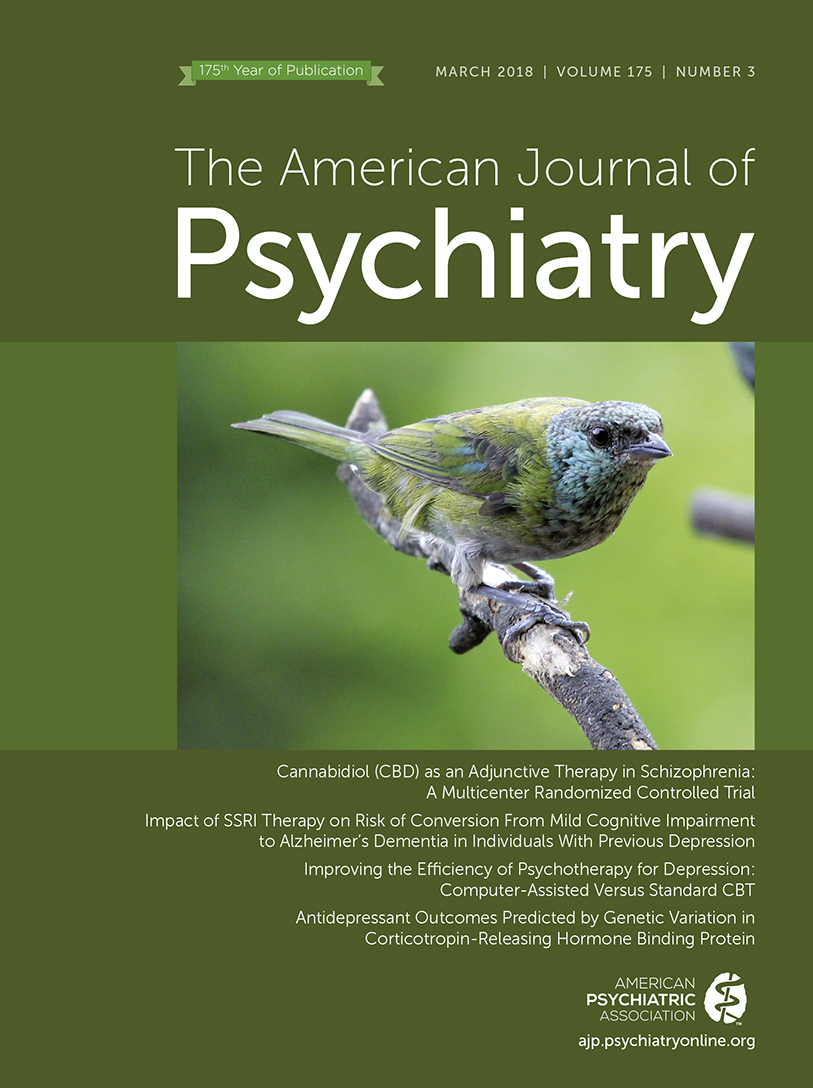Cannabidiol (CBD) as an Adjunctive Therapy in Schizophrenia: A Multicenter Randomized Controlled Trial
Abstract
Objective:
Research in both animals and humans indicates that cannabidiol (CBD) has antipsychotic properties. The authors assessed the safety and effectiveness of CBD in patients with schizophrenia.
Method:
In an exploratory double-blind parallel-group trial, patients with schizophrenia were randomized in a 1:1 ratio to receive CBD (1000 mg/day; N=43) or placebo (N=45) alongside their existing antipsychotic medication. Participants were assessed before and after treatment using the Positive and Negative Syndrome Scale (PANSS), the Brief Assessment of Cognition in Schizophrenia (BACS), the Global Assessment of Functioning scale (GAF), and the improvement and severity scales of the Clinical Global Impressions Scale (CGI-I and CGI-S).
Results:
After 6 weeks of treatment, compared with the placebo group, the CBD group had lower levels of positive psychotic symptoms (PANSS: treatment difference=−1.4, 95% CI=−2.5, −0.2) and were more likely to have been rated as improved (CGI-I: treatment difference=−0.5, 95% CI=−0.8, −0.1) and as not severely unwell (CGI-S: treatment difference=−0.3, 95% CI=−0.5, 0.0) by the treating clinician. Patients who received CBD also showed greater improvements that fell short of statistical significance in cognitive performance (BACS: treatment difference=1.31, 95% CI=−0.10, 2.72) and in overall functioning (GAF: treatment difference=3.0, 95% CI=−0.4, 6.4). CBD was well tolerated, and rates of adverse events were similar between the CBD and placebo groups.
Conclusions:
These findings suggest that CBD has beneficial effects in patients with schizophrenia. As CBD’s effects do not appear to depend on dopamine receptor antagonism, this agent may represent a new class of treatment for the disorder.



